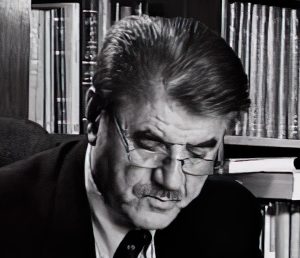- Nikbakht, according to the Constitution, the presumption of innocence is fundamental, and no one is considered guilty unless their crime is proven in a competent court. Given the explicitness of the law in this area, can it be claimed that the presumption of innocence has no legal application or support in the process of determining the qualifications of candidates?
Article 37 of the Constitution, known as the presumption of innocence, is derived from a religious principle of the same name. In the science of principles of jurisprudence, used to derive legal rulings, it is defined as such: when there is no other evidence to prove or disprove something, the presumption is innocence. This principle was incorporated into the Constitution, and its invocation is valid and correct in all cases unless the claimant presents evidence to the contrary. In fact, the Election Law of 1999 identified four authorities responsible for evaluating the qualifications of candidates: the judiciary, to determine whether the person has a definitive conviction that disqualifies them from running; the Ministry of Intelligence, to assess whether the candidate has ties to political groups opposed to the regime; Interpol, to determine if the person has a criminal record in other countries; and the National Organization for Civil Registration, to verify the candidate’s Iranian nationality. The drafters of this law believed that if these four authorities gave a positive assessment of the candidate, then the person was essentially qualified to run, and the presumption of innocence should be applied to them.
- But doesn’t the Guardian Council’s oversight extend beyond these matters, including subjective and ideological principles of the individual, thus raising questions?
The Guardian Council argues that certain issues are not addressed by these four authorities alone. For example, it has been stated that these authorities cannot assess a person’s commitment to performing religious duties and avoiding prohibited acts, and that the Guardian Council must investigate these matters through other channels to determine if the candidate adheres to these principles. Thus, the Guardian Council believes that merely relying on these four authorities, as stipulated in the 1999 Election Law, is insufficient and that its members must conduct additional investigations into the candidate’s qualifications. The Council is not merely concerned with whether the person is a criminal or not, or if they are Iranian, but rather seeks to fundamentally ascertain if the individual fulfills religious obligations. In any case, the Constitution states that interpreting the Constitution is the responsibility of the Guardian Council, and this complex issue has persisted since the death of the late revolutionary leader and remains unresolved.
- Has the scope of the Guardian Council’s oversight been specified in the law?
The Guardian Council argues that its oversight of Parliament is not merely informative but rather authoritative, meaning it can take any action necessary to ascertain the qualifications of candidates. Although opponents believe that if this oversight was authoritative, the legislators (i.e., the drafters of the Constitution) would have explicitly mentioned it alongside the word oversight, similar to how authoritative oversight is usually referenced in wills and endowments, where the term authoritative is clearly stated next to oversight.
- Is the term “dubious character,” used by the head of the judiciary to reject candidates, mentioned in the Constitution, or does the head of the judiciary also interpret the law independently?
I haven’t read the statements from the judiciary, but generally speaking, the head of the judiciary cannot comment on the qualifications or validity of parliamentary and Assembly of Experts candidates. The approval and disqualification of candidates is the responsibility of the Guardian Council, as stated in the Constitution, which assigns the Council the task of interpreting the Constitution.
- You mentioned that these disagreements and confusion date back to after the death of Imam Khomeini. Was the Guardian Council’s authoritative oversight discussed during his time, and what changes occurred before and after his passing?
During Imam Khomeini’s lifetime, the issue of the Guardian Council’s authoritative oversight was not as prominent. If it existed, it was not as pronounced. In fact, if such interpretations of oversight had existed, many members of the then-parliament would not have qualified to enter Parliament. If we trace this issue back, it would mean those representatives were not qualified at the time, and thus, that Parliament would not have been legitimate. If any issues arose among the scholars, Imam Khomeini, as the founder of the Islamic Republic, would resolve them. I do not recall any issues during Imam Khomeini’s time that parallel the current debates over parliamentary and presidential candidates. The same applies to the Assembly of Experts, suggesting that even if the Guardian Council’s oversight existed back then, it was not exercised in the current manner, or the present interpretation of authoritative oversight emerged later.
- As a legal expert, what solution do you propose to resolve this situation?
In my view, these disagreements will persist because the Guardian Council claims that, according to the Constitution, it has the right to interpret the Constitution, and its interpretation is that oversight is authoritative, not merely informative. This debate emerged during elections between the president and the Guardian Council, where the president argued that the Council is an overseer, not an executor, and that the government is responsible for executing elections. The Guardian Council is an observer, and observers cannot perform the functions of executors. Oversight and execution should not be mixed, and we should adhere strictly to the Constitution.
In any case, most jurists, scholars, and legal experts share this view, and as long as the Constitution remains unchanged, these disagreements will persist. It is not a debatable issue, and Ayatollah Jannati’s position will remain unchanged, even if he lives for a hundred more years!

